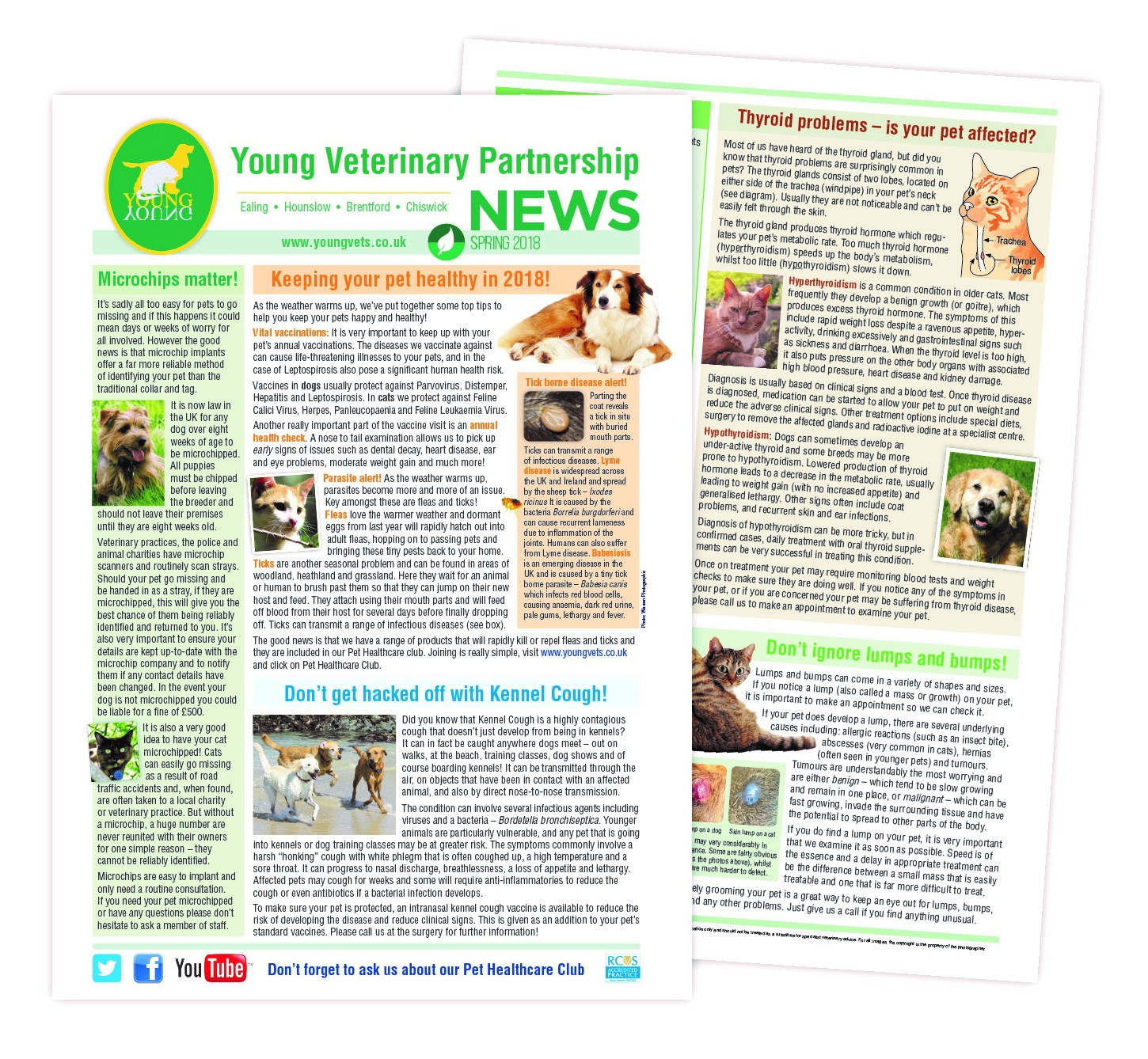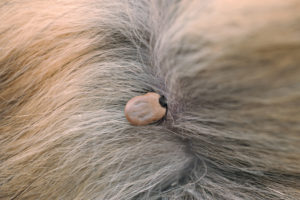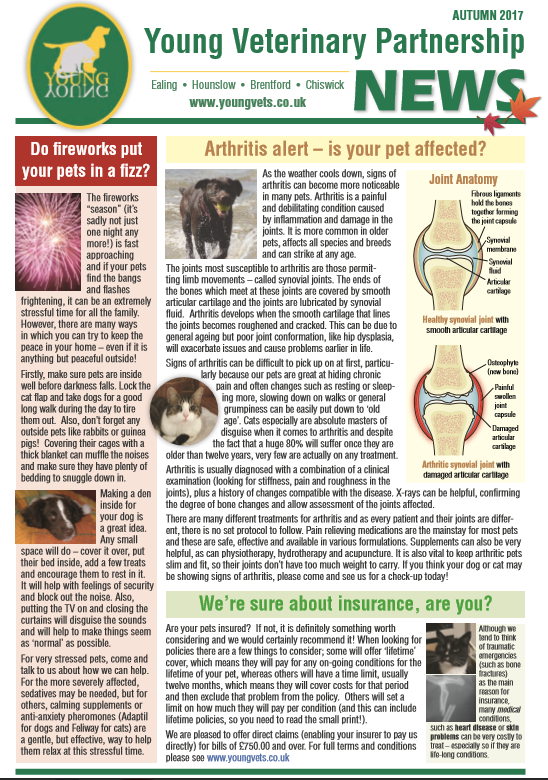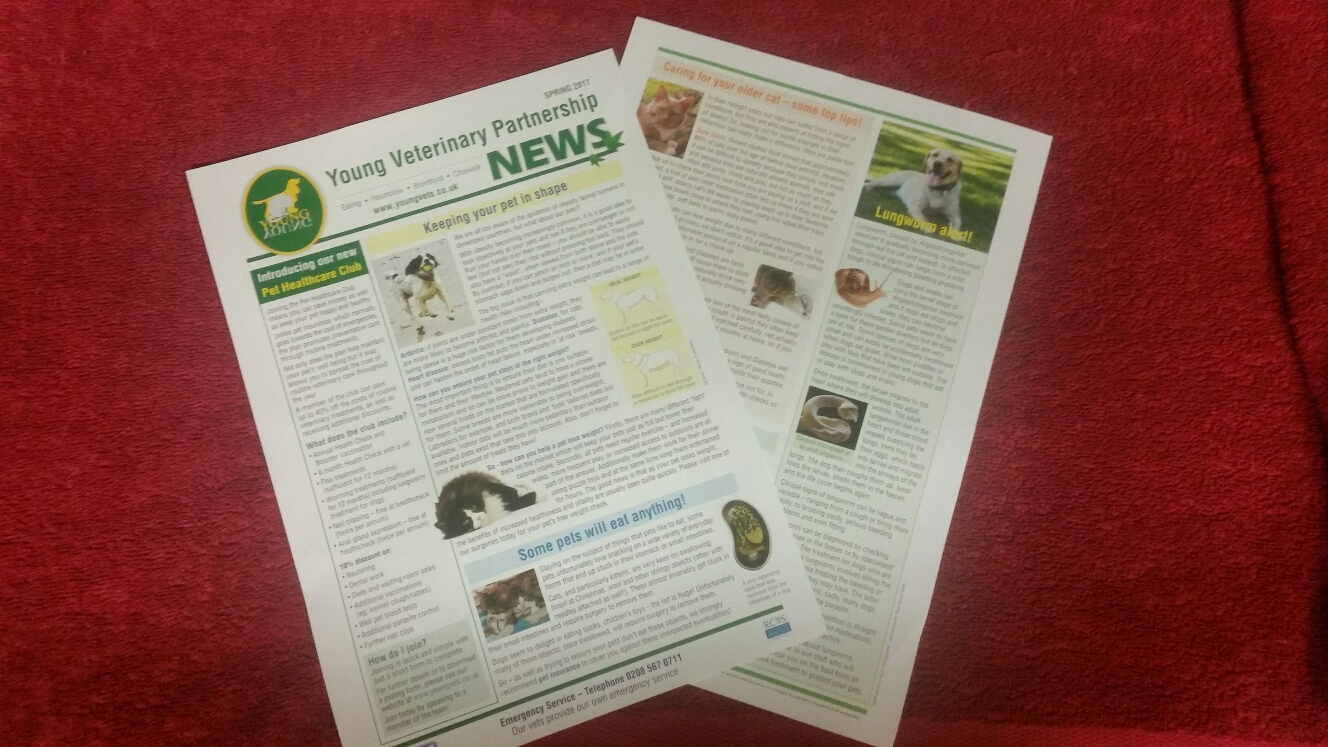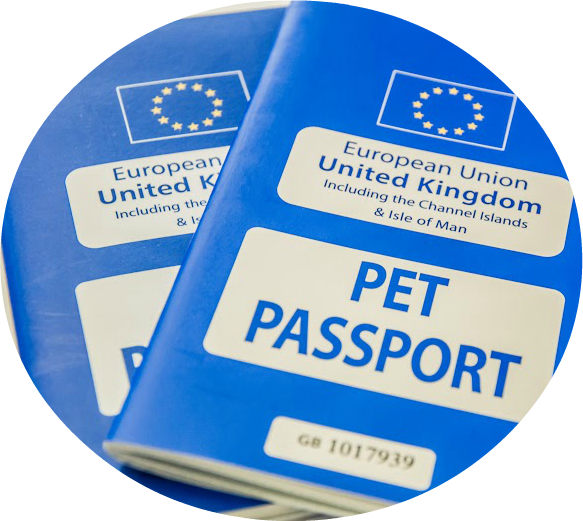Is your teenage cat losing weight?
Hyperthyroidism is a common disease in teenage cats, sadly sometimes, their symptoms are missed and referred to as just ‘old age’. Overactive thyroid gland (another name for the condition) is something we see quite regularly in older cats, the good news is diagnosis is fairly simple and there are different treatment options available to suit the individual patient.
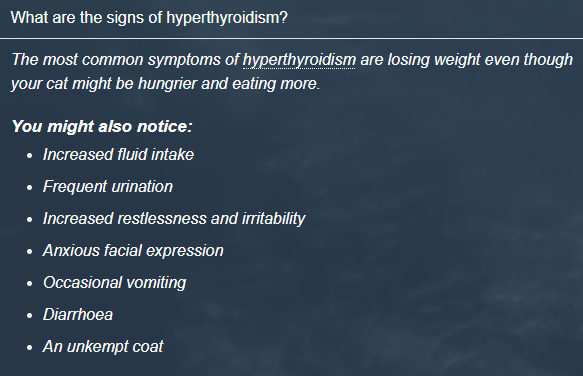
The thyroid glands are found in your cats neck, either side of the wind pipe. The glands produce a hormone which controls the body’s metabolism, which is why owners commonly report weight loss as one of the first symptom’s they notice.
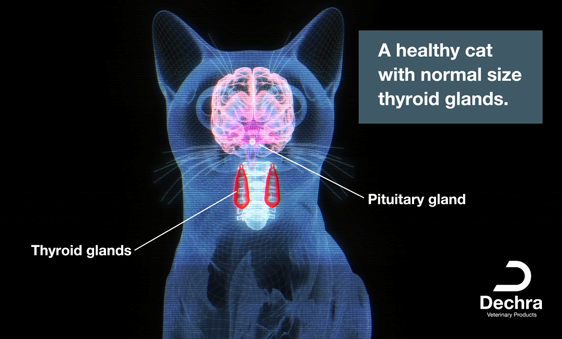
Results day.
Once the diagnosis has been confirmed there are 2 types of treatment that we offer here at Young Vets :
- A daily dose of medication given at home, (usually tablets) to stop the overproduction of the hormone. If choosing the medication from home option, the owner will need to ensure the cat is receiving the specified dose at regular intervals (the same time each day).
-
An operation to remove either one or both thyroid glands. We would often recommend 14 days of medication prior to surgery to help stabilize the hormones but following on from the surgery medication would cease. A speedy recovery is usually followed and the patient can go home either the same or following day.
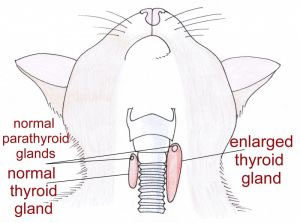
Hyperthyroidism in cats
-
If left untreated it can lead to blindness, heart conditions and in extreme cases even death.
Following either treatment option, your cats progress will need to be monitored regularly by yourself and your vet but there is no reason your cat should not continue to live a happy, healthy life.
If you have concerns about your teenage cat, don’t hesitate to contact your local Young Vets surgery to discuss your cats case with one of our experienced veterinary surgeons.


